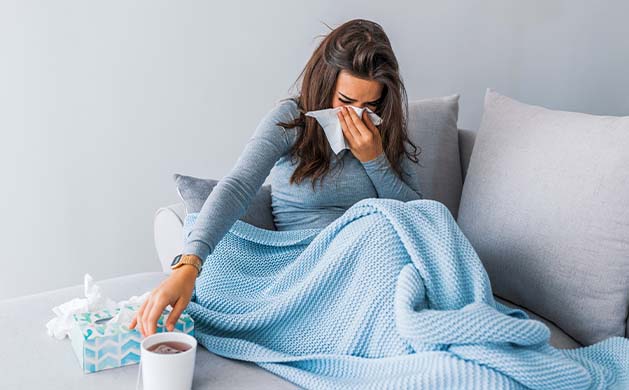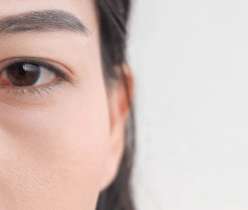Pollen allergy is an allergic condition affecting the eyes, nose etc., usually characterized by nasal congestion, nasal discharge, itchy, watery eyes, itchy nose, inner ear, and the mouth that are caused by a hypersensitivity to airborne pollen, such as the pollen of grasses, trees, flowers, and weeds. Seasonal allergic rhinitis or hay fever and asthma is an allergic response to pollen. It causes inflammation and swelling of the lining of your nasal membrane and the protective tissue of your eyes, also known as the conjunctiva. Pollen allergy symptoms include congestion, sneezing, and itchy, watery eyes, nose, and mouth. Consult your physician before you buy allergy medication online or over the counter to treat allergic symptoms.
Pollen plays a crucial role in plant growth but can cause unpleasant symptoms for individuals with pollen allergies. During growing seasons, pollen spreads via the air and fertilizes plants. When people who already suffer from allergies breathe in this pollen, their bodies recognize it as a threat to their system. This blog teaches about pollen allergy, types, symptoms, and causes. We also look at some treatment options that might provide symptomatic relief.
Symptoms of Pollen Allergy
An allergic reaction to pollen may cause a person to experience an itchy throat, runny nose, a stuffy nose, wheezing, and itchy or watery eyes. A pollen allergy may worsen asthma symptoms in asthmatics, including wheezing and coughing. When pollen enters the system, it is believed to release water-soluble proteins on the respiratory lining. These proteins are generally harmless, but sometimes a person’s body identifies them as harmful substances.
Types of Pollen Allergy
There are different types of pollen which is why some people’s allergy symptoms may be bad when trees are flowering, and others may have symptoms that worsen when grasses grow. People may be particularly allergic to the following pollen types:
- Grasses
- Weeds such as ragweed, sagebrush, or tumbleweed
- Trees such as cedar, birch, and oak.
As per data from the Asthma and Allergy Foundation of America, Grasses are the most common cause of pollen allergy. If you do not know which pollen you are allergic to, you can consult a doctor who is an expert in treating allergies. An allergist can conduct various tests to identify what pollen you are sensitive to. Knowing which pollen types a person is allergic to can help them decide the appropriate treatment and the best time to avoid outdoor activities. Some people with a pollen allergy may also be sensitive to certain foods. People should consult their allergist about how pollen allergies might impact what they eat.
Treatment options to consider
Medical treatments, home remedies, and lifestyle modifications can help ease pollen allergy symptoms.
Treatment includes:
- Over-the-counter antihistamine drugs such as loratadine and cetirizine. A person with pollen allergy should begin these medications a few weeks before allergy season begins. You can buy anti-allergic drugs online in US at the best price.
- Doctors may prescribe immunotherapy tablets and shots to desensitize the body to pollen.
- Nasal corticosteroid sprays that effectively reduce inflammation and associated symptoms
- Nasal sprays are specially formulated to relieve throat itching and congestion. These are decongestants that are a short-term solution for swelling.
Get a prescription from your doctor to buy allergy medicine online or from a chemist directly to reduce pollen allergy symptoms. Most of these treatments help manage allergic symptoms but cannot cure them. If you are looking for a long-term solution, you may discuss immunotherapy with your doctor. Immunotherapy is effective in long-term allergy treatment but can take several years to complete.
Home remedies to check
You can take various home remedies and preventative steps to reduce allergic symptoms. These include:
- Keep your doors and windows closed, especially when pollen counts are high.
- Change clothes each time you come back inside from the outdoors. This helps to limit pollen exposure.
- Taking a bath or shower before bed also helps reduce pollen build-up.
- Wash bedding in hot water once a week.
Many home remedies are available that you can try to treat allergy symptoms, but research studies have not yet proven the effectiveness of these home remedies. Some food experts say that eating local honey can help reduce allergic symptoms in the same way that allergy shots do.
Other home remedies that help manage pollen allergy symptoms include:
- Drinking herbal beverages such as teas made with ginkgo, milk thistle, stinging nettles, red clover or yarrow. The herbal formulations have anti-inflammatory effects, which help reduce allergy symptoms.
- Use neti pot to flush the nasal passage using salt and warm water.
- Take herbal capsules such as Euphrasia or Allium cepa.
Home-based solutions for pollen allergy are not scientifically proven to be effective by evidence suggesting they may help some people.
Final verdict!
A pollen allergy is common and can be irritating at times. An allergist can help determine which pollen is the cause of your pollen allergy. Medications and home-based treatment can help reduce symptoms until the pollen season subsides. You can buy allergy medicine online to treat pollen allergies.



